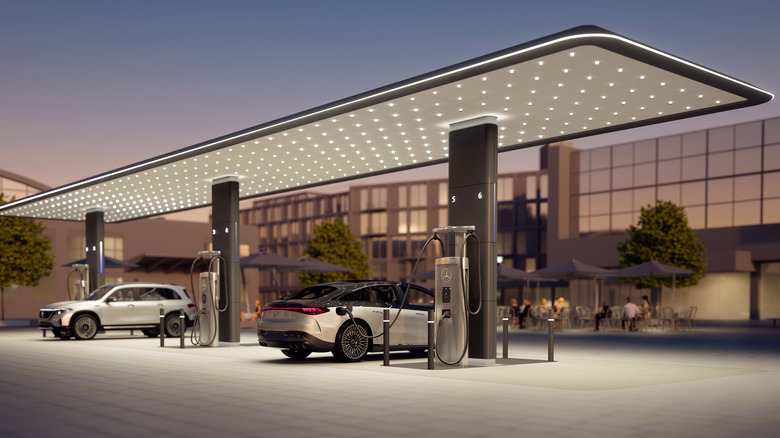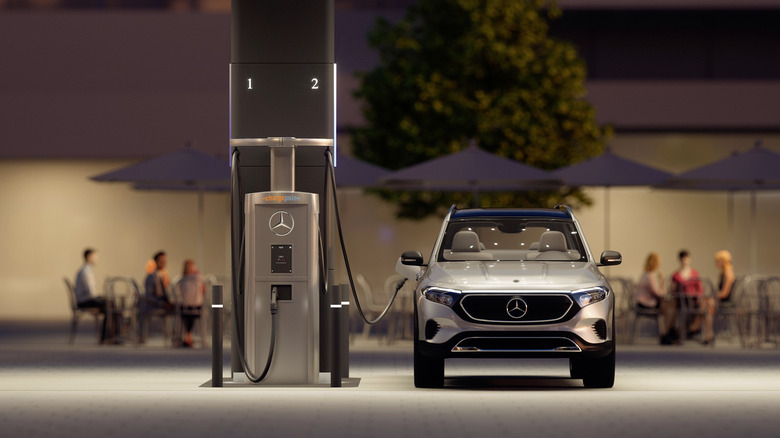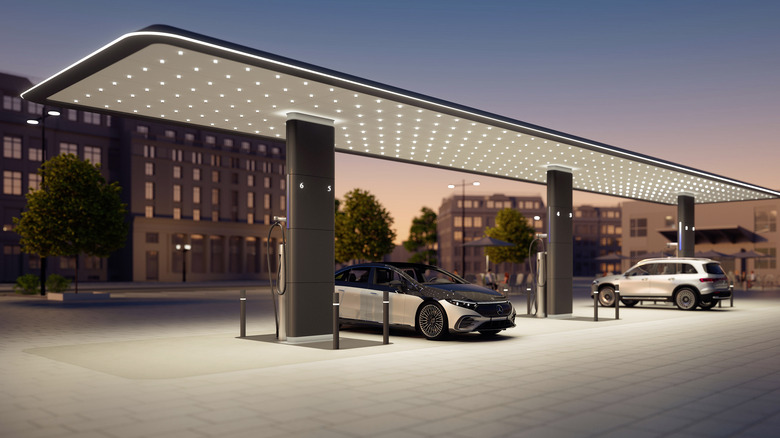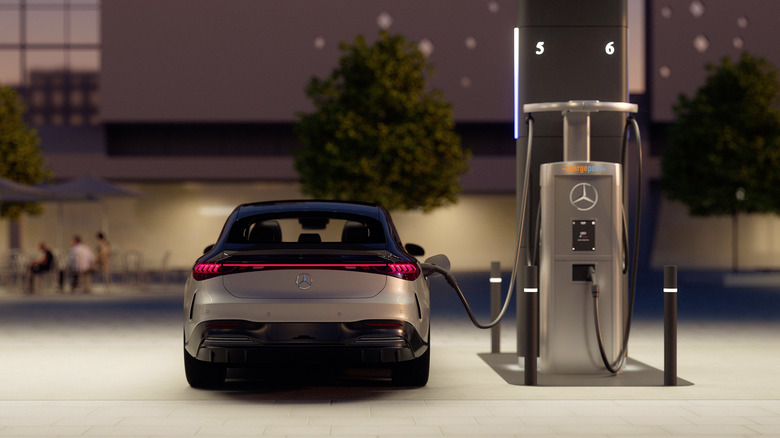Mercedes Is Building A Supercharger Network Of Its Own, Open To All EVs
Tesla's Supercharger network is about to get some big-name competition, with Mercedes-Benz announcing today that it will launch a branded, high-power EV charging network. The roll out — which will begin in North America, but eventually spread across Europe, China, and other markets, according to the automaker — will start in 2023. From the outset, Mercedes is thinking of things a little differently to how Elon Musk began his charging strategy.
Unsurprisingly, the best experience will be for Mercedes-Benz drivers. They'll be able to pre-book a charging station from their car, with the locations showing up in the MBUX infotainment system. With Plug & Charge, drivers will be able to simply connect the charging cable to their EV, and have all the authentication happen automatically.
However, Mercedes won't be limiting its chargers only to drivers of its own vehicles. Instead, the network will be available for all compatible EVs, with the ability to pay via card, app, or other methods. Tesla Superchargers are beginning to open up to third-party electric cars in some locations, but originally they were a perk of Tesla owners alone.
Up to 350kW on tap for EVs
The chargers themselves will be built in partnership with local charging and energy companies, such as Chargepoint and MN8 Energy in the U.S. Station size will vary according to location, with hubs offering four to 12 DC fast chargers — and, Mercedes says, eventually as many as 30 fast chargers. These will provide up to 350 kW; a Mercedes EQS SUV, for example, can go from 10-80% charge in around 31 minutes on a 200 kW charger.
For the power itself, Mercedes plans to use green energy as much as possible. Some will have solar panels, though that's expected to provide enough juice for the lighting and security systems, rather than recharge the cars themselves.
Stations will be designed to suit the locale, with weather protection if possible, and with the bays themselves set up so that charging ports on either side of a vehicle can be reached. Mercedes says it also hopes to situate them near to restaurants and other facilities.
You don't need a Benz to plug in
Of course, the big question — and one increasingly relevant to Tesla owners who have seen Supercharger use soar in recent years — is how Mercedes will balance the user-experience of drivers of its own cars, while also making the chargers available to others. After all, public charging access already comes with its fair share of anxieties, particularly among new and potential EV owners. It's tough to assuage range anxiety if every charging spot is occupied — or, for that matter, if chargers are broken when drivers arrive.
For Mercedes drivers, the Electric Intelligence navigation system in the company's EVs will be able to integrate charging locations into a planned route, and automatically pre-book a plug accordingly. "The system knows the capacity utilization at the respective locations and ensures customers can gain immediate access to the reserved charging point at the required time," the automaker says. "This means no waiting for Mercedes-Benz customers."
A 10,000 charger target
By 2027, more than 400 hubs — for a total of more than 2,500 high-power chargers — is expected to be operational across North America. They'll be located in places like cities and popular shopping districts, at Mercedes-Benz dealers, and close to major transit arteries. In all, Mercedes says it expects the North American portion of the network to cost just over 1 billion euros — or over $1 billion — over the next 6-7 years. Mercedes-Benz will be contributing roughly half that figure, with MN8 Energy supplying the rest.
In time, much as we've seen with the Volkswagen-backed Electrify America, Mercedes says it expects its charging network to become an asset in its own right. The goal is to have more than 10,000 chargers available worldwide by the end of the decade — still, it's worth noting, that it's well short of Tesla's 40,000 Superchargers — in tandem with Mercedes' intention of switching entirely to EVs assuming each market is ready for that.



